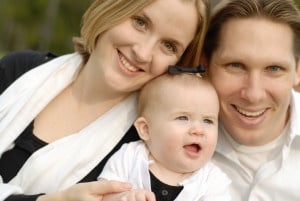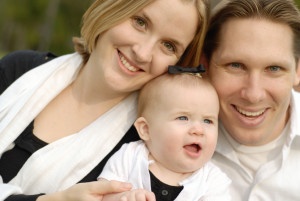
 I have written several blogs on issues pertaining to egg donors and recipients. These have been published over the past couple of years since I have been the egg donor co-ordinator at InVia. The response to these blogs has been overwhelmingly positive. I thought it would be a good idea to summarize the Top 10 frequently asked questions (in no particular order) for egg donor recipients.
I have written several blogs on issues pertaining to egg donors and recipients. These have been published over the past couple of years since I have been the egg donor co-ordinator at InVia. The response to these blogs has been overwhelmingly positive. I thought it would be a good idea to summarize the Top 10 frequently asked questions (in no particular order) for egg donor recipients.
“What does a Book Viewing appointment entail?”
You (and your partner if possible) would come in to speak with me about the program, review any questions you might have, and then I give you privacy to review the profiles on your own. There is no charge for this appointment, nor do we bill your insurance for it. Also, if you need to come back more than once to review the donor book you absolutely can do that as well. This appointment will usually take an hour or so. It could be longer or shorter depending on how quickly we go over your questions and how long it takes you review the profiles. Book viewing appointments are made during normal office hours Monday through Friday.
“I was told the charge to use an egg donor is $11,065. How does this break down? Will my insurance cover it?”
The amount of $11,065 is solely to use one of our donors; it does not cover any medical screening, medications, etc. No insurance will reimburse you this amount. It is broken down as follows:
“How do you screen your egg donors?”
First, they complete a brief application on our website. Next, they complete a 27-page health history questionnaire on our portal. Their next step is to meet with one of our physicians for an initial consultation.
They would then come in for day three hormones and ultrasound. Following that, they would have a conversation with a genetic counselor to discuss an in-depth family history. Finally, they would meet with a clinical psychologist with years of experience in screening egg donors.
“Can we have any contact with our donor?”
No. The donor signs a contract protecting her anonymity, and you cannot contact her. Conversely, she also has no way of contacting you, either. Many couples have a fear of the donor coming to their door looking for a baby. Not only does the donor know nothing about you at all, she also is not told whether or not you achieve a pregnancy.
“How many cycles can an egg donor do?”
The American Society of Reproductive Medicine (ASRM) recommends that donors donate up to six times. We adhere to the ASRM guidelines.
“Should I choose a donor that has previously done cycles, or is a new one better?”
Our doctors did an in-house study comparing new donors to donors that had done a cycle as well as comparing donors that had achieved a pregnancy of their own to donors that had not yet been pregnant and found no real variance across the board. We are very strict with our standards when screening donors, and as long as they fell within the parameters that we had set for our program, we could not definitively say one was better than the other.
Just because a donor had a really good cycle previously does not guarantee that she will repeat that, even with the same medications and doses. Our bodies can sometimes be unpredictable. I say the only benefit to using a donor that has done a cycle before is that she knows what she is doing and what to expect.
“Should I cryopreserve (freeze) my embryos from this cycle?”
We usually recommend it. First of all, a donor cycle is very expensive and although there is a very high success rate, there also are sometimes negative results. By cryopreserving your embryos created from the egg donor cycle, you are giving yourself the possibility of doing a frozen embryo transfer rather than starting all over again with a new donor.
“Have I seen my donor in your office before?”
That is always a possibility. However, once you are matched with a donor, we make sure you are never in the same office at the same time. One thing to remember is just because you see a young patient in our waiting area, that does not mean she is a donor. Women are trying to conceive at all ages and can also have fertility problems.
Also, women are very good at disguising their age. When you are looking at profiles of donors, the pictures they have submitted are “the best” of themselves. They don’t come to their appointments made up how they looked at their wedding or their prom, and even if you were given the opportunity, you might not recognize her in person.
“Can I view the profiles and not see the pictures?”
You absolutely can. If that is what you want, please let me know so I can remove the pictures before you come in to view the book.
“How long will this cycle take?”
This is the million dollar question. What we do is once you select your donor and sign your contract, we have both you and your donor call with day one of your period to come in between days two and four to draw all of the labs and start birth control. Then we have you schedule your nurse consult appointments to get your timelines.
Under normal circumstances if everything goes perfectly, we say it’s about six to eight weeks from contract signing to embryo transfer.
Ready to start on your pathway to pregnancy? We would love to help you. Contact us today!
Egg donation Infertility Infertility treatment InVia Fertility Specialists Top 10

Vicki Meagher has worked with InVia Fertility Specialists since 2006. She is our Third Party Coordinator, so she works with our patients that need an egg donor, sperm donor, gestational surrogate, or any combination of the above. She recruits and screens the egg donors for our in-house donor program as well. She loves working with intended parents and is passionate about third party reproduction and the important role it plays in helping patients achieve their dream of starting or extending their family. She is a member of SEEDS - the Society for Ethics for Egg Donation and Surrogacy.
Subscribe to our weekly blog digest

Entire Website © 2003 - 2020
Karande and Associates d/b/a InVia
Fertility Specialists

Comments